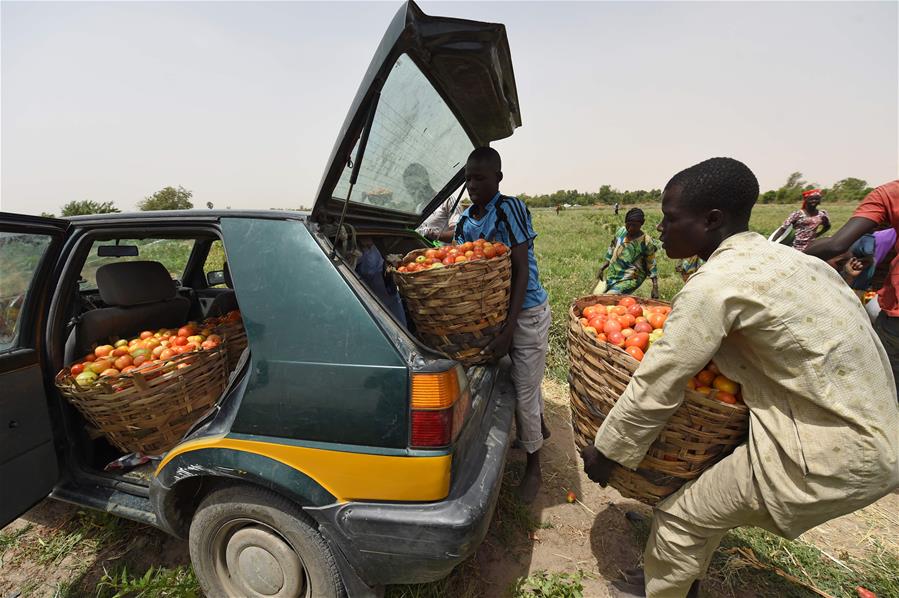
Recently, a news report about widespread pest infestation on Nigerian tomatoes, leading to a significant decrease in yield and a surge in prices, has attracted widespread attention. The soaring prices of local tomatoes in Nigeria have put pressure on many consumers and businesses. This event is not only a simple market phenomenon, but also a socio-economic issue worth pondering.
Firstly, let's fully analyze the reasons behind this news event. As an important agricultural country in Africa, Nigeria's tomato is one of its important agricultural products. However, in recent times, due to insect infestations, a large number of tomato plants have been damaged, directly leading to a sharp decrease in yield. This sudden natural disaster caused a sharp decline in the supply of tomatoes in the market, thereby driving up prices. For local residents, tomatoes are an indispensable part of their daily diet, and the skyrocketing prices undoubtedly bring great inconvenience to their lives.
In the face of this situation, we need to deeply criticize Nigeria's agricultural production and market regulation mechanisms. Firstly, from the perspective of agricultural production, Nigeria's agricultural infrastructure and technological level are relatively backward, which makes crops particularly vulnerable to natural disasters. In addition, the degree of organization in agricultural production is not high, and farmers lack effective market information and technical support, making it difficult to adjust the planting structure according to market demand. This backward agricultural production model is not only difficult to cope with the impact of natural disasters, but also difficult to meet market demand.
Secondly, from the perspective of market regulation mechanisms, Nigeria's agricultural market lacks effective regulatory and regulatory mechanisms. In the context of skyrocketing market prices, the government failed to take timely measures to intervene and regulate, leading to further exacerbation of market imbalances. In addition, the local agricultural industry chain is not perfect enough, and the processing and storage capacity of tomatoes is limited, which makes it difficult to effectively guarantee the supply of tomatoes in the market.
However, in the face of this crisis, we cannot simply blame and criticize. On the contrary, we should seek inspiration and inspiration from it to provide useful references for future agricultural development. Firstly, we should strengthen the construction of agricultural infrastructure and technical support, improve the disaster resistance and production efficiency of crops. By introducing advanced agricultural technology and equipment, strengthening technical training and guidance for farmers, and helping them improve their planting skills and management level. At the same time, the government should increase investment and support in agriculture to provide better production conditions and guarantees for farmers.
Secondly, we should strengthen the supervision and regulation mechanism construction of the agricultural market. The government should establish a sound agricultural market monitoring and early warning mechanism, and timely grasp market dynamics and trends. When there are abnormal fluctuations in market prices, the government should take effective measures to intervene and regulate to prevent market imbalances from occurring. In addition, the government should strengthen the integration and upgrading of the agricultural industry chain, improve the processing and storage capacity of agricultural products, and provide more high-quality agricultural products for the market.
Finally, we should also pay attention to the potential and opportunities for agricultural development in Nigeria. Nigeria, as one of the populous countries in Africa, has a vast agricultural market and abundant agricultural resources. With the continuous development of the African economy and population growth, the demand for agricultural markets will be increasing. Therefore, we should encourage and support Nigeria's agricultural development, strengthen cooperation and exchanges with other countries, and jointly promote the development and prosperity of African agriculture.
In short, although the Nigerian tomato crisis has brought great inconvenience and distress to local residents, it has also provided us with profound inspiration and inspiration. We should draw lessons and lessons from it, strengthen the construction of agricultural production and market regulation mechanisms, and provide useful reference and inspiration for future agricultural development. At the same time, we should also pay attention to the development potential and opportunities of African agriculture, and work together to promote the development and prosperity of African agriculture.

When the US Senate passed a resolution with 51 votes in favor and 47 votes against, terminating the global tariff policy implemented by the Trump administration citing a "national emergency," this seemingly symbolic vote actually contained multiple deep logics.
When the US Senate passed a resolution with 51 votes in fav…
Recently, according to Teslarati, Tesla announced that the …
Nikkei Group, the Japanese business information giant that …
Today, Tesla's annual shareholders' meeting kicked off. Thi…
A Listeria outbreak caused by pre-prepared pasta is continu…
On November 5th, technology media outlet ufukozen discover…